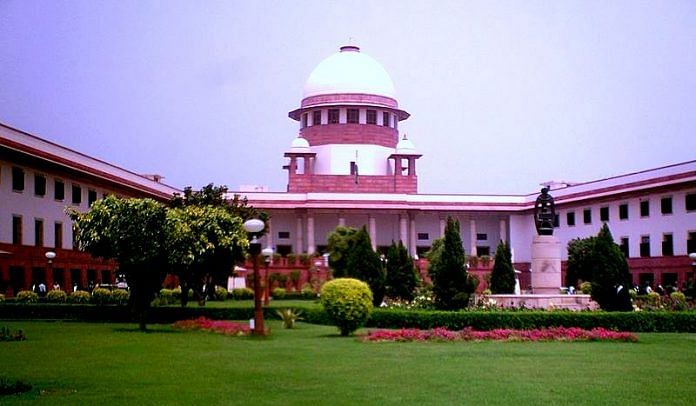A larger bench of the Supreme Court headed by CJI Dipak Misra decides to re-examine the judgments passed earlier this year by justices A.K. Goel and U.U. Lalit.
New Delhi: Two major decisions of the Supreme Court on matrimonial issues, which were considered a push back against women-centric laws, are being re-examined.
The apex court said Friday that its July ruling, which issued ‘guidelines’ to prevent arresting a husband and his relatives for cruelty against his wife, will be reconsidered.
Four days before, a larger bench had overruled another ruling that made video conferencing mandatory in matrimonial disputes, instead of transferring the case to a court of the wife’s convenience.
Incidentally, both the rulings that have come under the scanner were delivered by a bench of justices A.K. Goel and U.U. Lalit. These two judges have held the family law roster in court for over a year. In both cases, the petitioners had not specifically sought the relief the court granted.
Preventing arrest
In July, court had issued guidelines to prevent “false cases of harassment” filed by women. It had said that all complaints under Section 498A of the Indian Penal Code would have to be assessed by a three-member committee first.
Maharashtra-based non-profit Nyayadhara had moved the court, seeking to make it mandatory to have at least one woman in the prescribed three-member committee.
But on Friday, 13 October, a larger bench headed by the Chief Justice of India Dipak Misra said the entire ruling had to be reconsidered. It appointed an advocate as amicus curiae (friend of the court) to assist the court ruling.
“This was urgently required before there is gross miscarriage of justice. There is no need for an extra committee in the first place, so the entire order should be reconsidered,” senior advocate Indira Jaising said.
The video-conferencing ruling
The other ruling, making video conferencing mandatory in all matrimonial disputes, came in March.
A woman had sought the transfer of her divorce proceedings from her husband’s hometown to Jabalpur, where she was based. She had claimed that travelling to another city was expensive, and that her husband’s family also posed a threat to her.
The court had said that no matrimonial case would be transferred henceforth, and that all cases would be handled through video conferencing.
However, the larger bench, after reconsideration, said on 9 October that this would have to be decided on a case-by-case basis.



